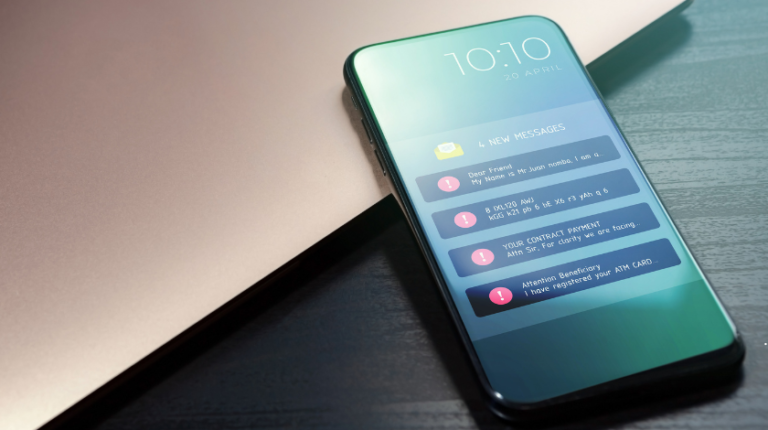In today’s digital age, scams have become increasingly sophisticated, making it essential for individuals to be vigilant about unsolicited phone calls and messages. One such phone number, 209-379-4351, has raised eyebrows and prompted concerns about its legitimacy. This article will delve into the details surrounding this number, exploring whether it is a scam, the types of scams commonly associated with similar numbers, and tips on how to protect yourself from potential fraud.
Understanding Scams and Their Evolution
Before diving into the specifics of 209-379-4351, it’s crucial to understand what scams are and how they have evolved over time. Scams are deceptive schemes designed to con people out of their money or personal information. They can take various forms, including:
- Phishing Calls: These are calls made by scammers pretending to be legitimate organizations, like banks or government agencies, aiming to extract personal information.
- Robocalls: Automated calls that deliver pre-recorded messages, often with fraudulent offers or urgent alerts about supposed issues.
- Tech Support Scams: Scammers impersonate tech support representatives, claiming that there’s a problem with your computer or device that needs immediate attention.
- Prize or Sweepstakes Scams: Victims receive calls claiming they’ve won a prize but must pay a fee to claim it.
As technology advances, so do the tactics employed by scammers. They often use caller ID spoofing to mask their true numbers, making it difficult for victims to identify fraudulent calls.
The Specifics of 209-379-4351
Initial Investigation
To determine whether 209-379-4351 is a scam, we first conducted an initial investigation. The number appears to be associated with various reports of suspicious activity online. People have reported receiving calls from this number, often describing similar experiences.
Common Complaints
Here are some common complaints reported by individuals who have received calls from 209-379-4351:
- Unsolicited Offers: Many users reported receiving unsolicited calls offering services such as debt relief, home improvement, or other unsolicited marketing offers.
- Aggressive Sales Tactics: Some callers reportedly used high-pressure sales tactics, pushing recipients to make quick decisions regarding their services.
- Lack of Transparency: Callers often failed to provide clear information about their identity or the purpose of their call.
- Hang-Ups: Several users reported that calls would disconnect abruptly, often leaving them puzzled and concerned.
These complaints align with common behaviors exhibited by scam callers, which raises the red flags for 209-379-4351.
Researching Caller Reputation
Online Resources
Several websites compile information about phone numbers, allowing users to report and review their experiences. By searching for 209-379-4351 on platforms such as:
- WhoCallsMe
- 800Notes
- TrueCaller
We can gauge the overall sentiment regarding this number. Many reports on these sites echoed the concerns mentioned above, indicating that the number is likely associated with scam activities.
Caller ID Spoofing
It’s essential to note that scammers often employ caller ID spoofing, allowing them to use a legitimate-looking number while operating from a different line altogether. This means that even if 209-379-4351 does not appear to be registered as a scam number, it doesn’t guarantee that calls from this number are safe.
The Scam Landscape
Understanding Common Scams
To further analyze the potential risks associated with 209-379-4351, we can explore the types of scams that are prevalent in similar scenarios:
- Impersonation Scams: Scammers impersonate government agencies, asking for personal information under the guise of verifying your identity for grants, loans, or other assistance programs.
- Loan Scams: These scams target individuals seeking financial help, offering loans with enticing terms that require upfront fees or personal information.
- Utility Scams: Callers pose as utility companies, claiming that your account is overdue and threatening disconnection unless payment is made immediately.
- Health Insurance Scams: With the complexities of health insurance, scammers may pose as representatives, trying to sell fake policies or obtain sensitive health information.
- Charity Scams: Scammers exploit the goodwill of individuals by creating fake charities, soliciting donations for fictitious causes.
Understanding these scam types can help individuals recognize warning signs when dealing with unsolicited calls, including those from 209-379-4351.
How to Protect Yourself
Recognizing Red Flags
When it comes to unsolicited calls, there are several red flags that can indicate a scam:
- Urgency: If the caller pressures you to act quickly, it’s often a tactic used by scammers.
- Unsolicited Offers: If you didn’t request information or services, be wary of engaging with the caller.
- Requests for Personal Information: Legitimate organizations will not ask for sensitive information over the phone.
- Poor Language Quality: Scammers often use poor grammar or language skills, indicating a lack of professionalism.
Reporting the Scam
If you suspect that you’ve encountered a scam, it’s crucial to report it:
- Federal Trade Commission (FTC): The FTC handles complaints about deceptive business practices.
- State Attorney General: Report the scam to your state’s Attorney General’s office.
- Local Law Enforcement: Consider reporting the incident to your local police department.
- Do Not Call Registry: If you receive unwanted calls, consider registering your number with the National Do Not Call Registry to reduce unsolicited calls.
Tools to Block Scammers
Several tools and apps can help you block unwanted calls:
- Call Blocking Apps: Apps like TrueCaller and Hiya can help identify and block spam calls.
- Carrier Services: Many mobile carriers offer built-in features to help filter out scam calls.
- Smartphone Features: Most smartphones now come with features that allow users to block unknown numbers or filter calls.
Conclusion
So, is 209-379-4351 a scam? While we cannot definitively label it as such without direct evidence, the significant number of complaints and the nature of the calls associated with this number strongly suggest that it may be linked to fraudulent activity.
To protect yourself, always be cautious when dealing with unsolicited calls, recognize the red flags, and take proactive steps to report and block potential scams. By staying informed and vigilant, you can safeguard your personal information and avoid falling victim to scams.

